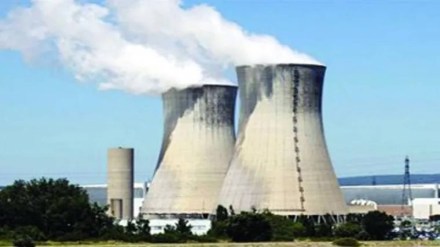The government has accorded approval to the Anushakti Vidhyut Nigam Ltd. (ASHVINI), a Joint Venture of Nuclear Power Corporation of India Limited (51%) and NTPC Ltd (49%) to build, own, and operate nuclear power plants in India.
Additionally, the government also approved the transfer of Mahi Banswara Rajasthan Atomic Power Project with a capacity of 4×700 MW based on indigenous pressurized heavy-water reactor technology from NPCIL to the JV company.
It approved exemption to NPCIL to invest more than Rs 500 crore and exemption to NTPC to invest more than Rs 5,000 crore in a single JV or subsidiary Company.
“This will enable adequate financing for accelerated nuclear power capacity addition in India,” NTPC Ltd said. In addition to the Mahi Banswara project, ASHVINI will also pursue other nuclear power projects in different parts of the country.
“This will pave the way for pooling of resources from both NTPC and NPCIL, in terms of finances, technology and project expertise for the rapid expansion of nuclear power productivity in the country to meet the targets of net zero by 2070.”
Speaking on the company’s 48th annual general meeting, Gurdeep Singh, Chairman and Managing Director, NTPC Ltd said that the company is on the verge of commencing work on the 2.8 gigawatt (GW) Mahi Banswara nuclear project in Rajasthan through its joint venture with Nuclear Power Corp of India with an estimated investment of Rs 50,000 crore.
“In parallel, we are taking steps to form a separate subsidiary dedicated to the nuclear business going forward,” the CMD had said.
Earlier, NTPC had signed a supplementary joint venture agreement with Nuclear Power Corp of India for the development of Mahi Banswara project and another nuclear plant in Chutka in Madhya Pradesh with a capacity of 1.4 GW. However, the Chutka project will now be undertaken by NPCIL independently, the company had said.
The company is also planning to set up a new subsidiary to undertake nuclear projects and is looking to develop nuclear power plants in Tamil Nadu, Karnataka, Jharkhand, Chhattisgarh, and Gujarat among other states after getting requisite approvals.
